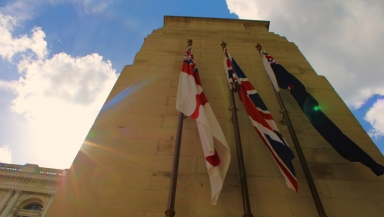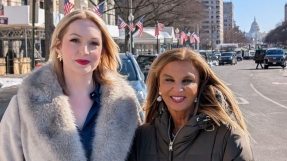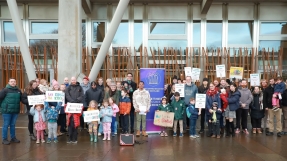
On Sunday, millions of people throughout the UK and around the world will observe two minutes silence to remember those who have died in conflicts, both past and present.
This tradition was started over 100 years ago to commemorate the end of hostilities in World War One – it was at precisely 11 o'clock on 11 November 1918, after four years of horrific fighting and the loss of millions of lives, that the guns on the Western Front fell silent.
My grandfather, Bernard, was amongst those who fought in this conflict. If you had asked him as a 16-year-old boy what he was fighting for, his response would have been resolute: 'for King and country, to protect the freedoms we treasure and our way of life'.
This Sunday, there's a concern that pro-Palestinian demonstrations might disrupt nationwide memorial services and events. How should we respond?
First, we should recognise that those who have sacrificed their lives in conflict did so to safeguard the right to peaceful protest, a central tenet of contemporary liberal democracy.
The Bible tells us that all individuals are ennobled in the sight of God (Genesis 1:27, Deuteronomy 17:14-20). This upholds our understanding that everyone should enjoy equal status under the law and have freedom of conscience.
Secondly, those who protest should respect the rights of those who wish to observe the two minutes of silence and memorial events in peace. This is what liberal democracy and a truly civil society look like. Staging protests to clash with acts of remembrance would be provocative and disrespectful.
Thirdly, the Chief Rabbi was right to note that the lines between demonstrators and those who support the brutal terrorism of Hamas has become blurred in recent weeks.
When protests turn violent and incite violence against others, the police should take swift action. Because this, too, is necessary in a liberal democracy.
Paul Woolley is CEO of the London Institute for Contemporary Christianity (LICC).













